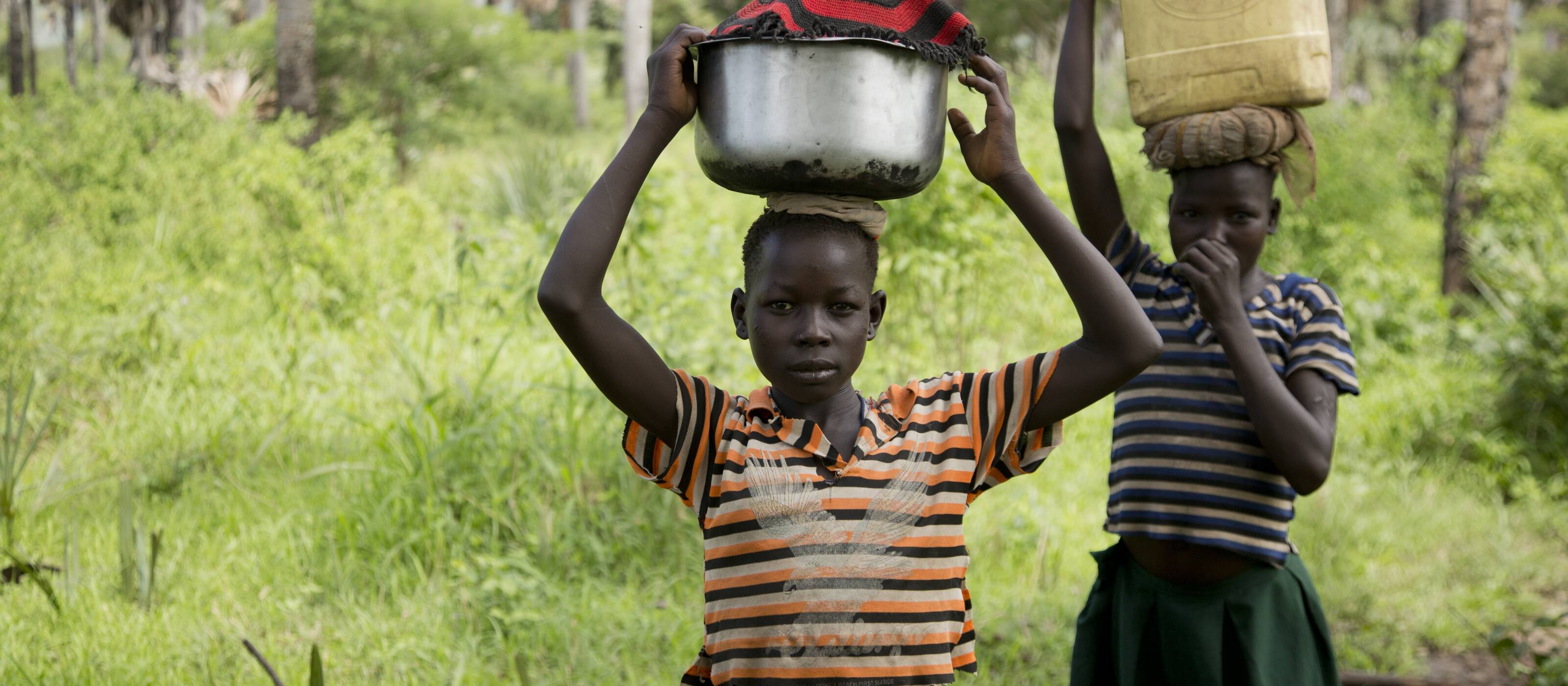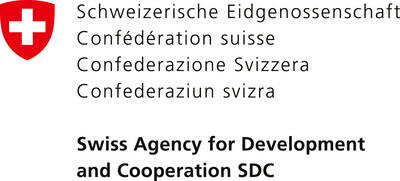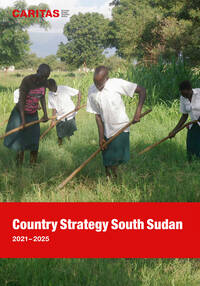

South Sudan
What we do
More than three quarters of the population of South Sudan live in poverty and malnourishment is widespread. The security situation remains very fragile with repeated outbreaks of ethnic tensions and violence. The negative impact of climate change and recurring crises such as droughts, floods or armed hostilities aggravate the situation for the already vulnerable population.
Considering the fragility of the South Sudanese context, the programme of Caritas Switzerland in South Sudan aims to provide assistance that fosters the self-reliance of the population and leads to long-lasting results. The interventions focus on the fields of income and climate. As most people in South Sudan live from agriculture, Caritas Switzerland empowers smallholder farmers to sustainably manage their natural resources and improve their access to water and sufficient food. By creating linkages to the markets and more inclusive value chains, Caritas Switzerland enables famers and small business holders to generate income. Through kitchen gardens, mothers of malnourished children have access to nutritious food and additional income for their families.
Moreover, to raise awareness for the interconnectedness of climate, water, food and the natural environment, Caritas Switzerland promotes the innovative Blue School concept, hich teaches children about natural resource management, sanitation and waste management. Irrigated school gardens provide a platform for the students to learn about nutrition and sustainable agricultural practices. Furthermore, in view of the changing climatic conditions, Caritas Switzerland engages in providing equitable and sustainable access to safe drinking water and water for agricultural use. Combined with the promotion of improved hygiene practices in schools and villages, this leads to better health and well-being of children as well as poor and marginalized population groups. Depending on the needs on the ground, the programme combines emergency aid with longer-term development interventions (humanitarian-development nexus).
With this holistic approach, Caritas Switzerland enables communities to better cope with future crises and become more resilient. Caritas Switzerland is active in Eastern Equatoria, the border region to Uganda. The projects of Caritas Switzerland follow a multi-stakeholder and participatory approach, thereby building on local capacities and creating local ownership.
Objectives
Income
Caritas enables youth, minorities, smallholders and other vulnerable people to increase their income
thanks to improved skills and a more inclusive agricultural market system.
- Smallholders and other value chain actors have gained access to information, tools and services needed to improve the production and processing of sustainable products and nutritious food as well as market-related services and business contacts to enter higher addedvalue markets.
- Youth, minorities, and other vulnerable people, have gained access to high-quality non-formal and formal vocational skills development.
Climate Change
The basis of life is sustainably secured through the use of natural resources, adapted to climate variability and change, which takes into account the health of the supporting ecosystems.
- Agriculture and natural resource management are based on quantitative data, such as weather stations and climate services.
Emergency Aid
Communities in humanitarian crisis situations can cover their basic needs.
- People in humanitarian crisis situation are supported invtheir basic needs and get access to services in a safe, accessible and participatory manner.
- Communities in humanitarian crisis situations are supported in the rehabilitation of basic infrastructure.
Snapshot
- Engagement in the country since: 1972
- Our main donors: Swiss Agency for Development and Cooperation (SDC), Canton of Geneva
- Social-media:
Contacts

Header image: South Sudan 2014 © Pia Zanetti

